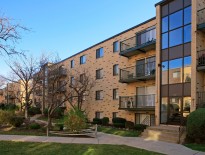Earlier this year, President Donald Trump and his administration imposed a wide range of tariffs – and have since threatened to inflict more – stoking trade wars with allies and countries that do an immense amount of business with the U.S. such as China.
The effects of the policies have begun to trickle down and are now even catching the attention of some community banks.
Tariffs on steel and aluminum and uncertainty regarding the future has driven up the cost of construction materials, prompting some to question how this will impact commercial real estate activity.
“We are seeing some changes to development contracts where developers are looking to either fix the cost of goods and materials in those contracts, or they are requiring any buyers to pay for changes in the cost of materials,” Robert Cozzone, CFO of Rockland Trust, said on a recent earnings call. “They are either fixing with suppliers or passing it on to buyers, so that is a new dynamic we have just seen this quarter that we haven’t seen previously.”
While experts agree this change in habit has certainly been prompted by tariffs and trade worries, they are unclear on whether it has actually impacted demand.
“We have heard that trade policies are increasing the cost of materials from outside the country, so we have heard that materials coming domestically have also increased because they can charge more to keep on par with the competition from international sources,” Lauren O’Neil, a senior managing director in the Boston office of the commercial real estate firm HFF, told Banker & Tradesman. “It seems to have impacted the supply chain, which in turn is driving up pricing because there is no slowdown in demand.”

Bram Berkowitz
What Impact, If Any?
Commercial real estate activity at the parent company of Rockland Trust only added about $29 million in volume in the second quarter of 2018, although year-over-year growth in this loan category was less than $50 million.
Commercial construction loans at the company declined by $36 million from the linked quarter.
Cozzone told investors on the earnings call that the decrease in commercial construction was due to many of those loans moving into the commercial real estate bucket, but he also acknowledged that commercial real estate would have been down in the quarter without them.
He did not, however, say demand had been down and added that he expects to see good construction loan growth in the third quarter.
The tariffs also do not appear to have had a major impact on loan activity in Massachusetts overall.
While second quarter data is not available, between the first quarter of 2018 and the linked quarter and year-over-year, state-chartered banks in Massachusetts increased loan volume in construction and land development, nonfarm, nonresidential properties and multifamily residential real estate, according to FDIC data.
“I am not hearing about the slowdowns because it (commercial real estate) has been gangbusters,” said Robert Ashbaugh, a senior risk management consultant at the North Carolina-based firm Sageworks. “I am not hearing about deals that are not getting done. If anything, I am hearing about projects that are taking too long.”
Future Uncertain
The question is whether tariffs now – or looming threat of tariffs in the future – impact the industry down the road.
Well, nobody has a crystal ball, but it’s certainly a possibility; the construction industry has already borne and is expected to incur even more of the brunt of tariffs.
The overall cost of construction materials grew 8.8 percent year-over-year in May, the largest annual increase in nearly seven years, according to an analysis of new U.S. Labor Department data by the Associated General Contractors of America.
During the same time period, the producer price index – a measure of all materials used in construction projects including items consumed by contractors – jumped by 17.3 percent for aluminum mill shapes, 13.9 percent for lumber and plywood, 13.8 percent for copper and brass mill shapes and 10.5 percent for steel mill products.
Other price increases include 44.5 percent for diesel fuel, 8.9 percent for asphalt felts and coatings, 6.5 percent for ready-mixed concrete and 5.2 percent for paving mixtures and blocks, according to the association’s analysis.
“Anything based on commodities is going to be affected to some degree,” said Ashbaugh.
The increase in the cost of materials, according to O’Neil, has resulted in lower yields, but because of the booming demand in the commercial real estate sector, especially in Boston, projects continue to move forward anyway.
“People believe in the long-term fundamentals, so they are okay living with lower yields initially in order to get into the market,” she said. “We will see if that changes as costs continue to increase and yields continue to compress. There will likely be an inflection point eventually, but so far, we aren’t seeing it.”




 |
| 

